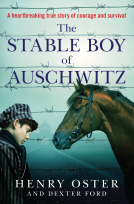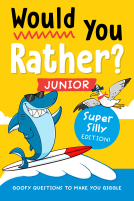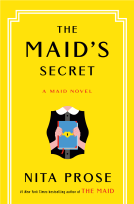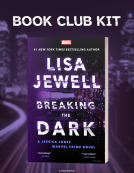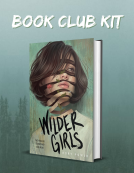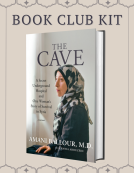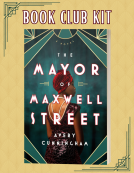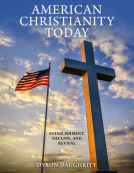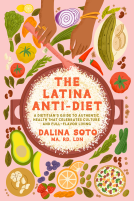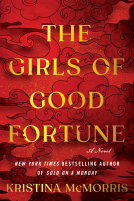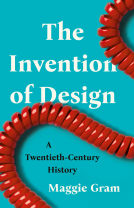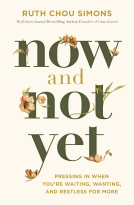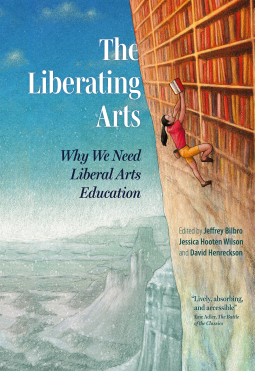
The Liberating Arts
Why We Need Liberal Arts Education
by Jeffrey Bilbro, Jessica Hooten Wilson, David Henreckson, Emily Auerbach, Nathan Beacom, Joseph Clair, Margarita Mooney Clayton, Lydia Dugdale, Brad East, Don Eben, Becky L. Eggimann
This title was previously available on NetGalley and is now archived.
Send NetGalley books directly to your Kindle or Kindle app
1
To read on a Kindle or Kindle app, please add kindle@netgalley.com as an approved email address to receive files in your Amazon account. Click here for step-by-step instructions.
2
Also find your Kindle email address within your Amazon account, and enter it here.
Pub Date Aug 15 2023 | Archive Date Aug 30 2023
Plough Publishing | Plough Publishing House
Talking about this book? Use #TheLiberatingArts #NetGalley. More hashtag tips!
Description
A new generation of teachers envisions a liberal arts education that is good for everyone.
Why would anyone study the liberal arts? It’s no secret that the liberal arts have fallen out of favor and are struggling to prove their relevance. The cost of college pushes students to majors and degrees with more obvious career outcomes.
A new cohort of educators isn’t taking this lying down. They realize they need to reimagine and rearticulate what a liberal arts education is for, and what it might look like in today’s world. In this book, they make an honest reckoning with the history and current state of the liberal arts.
You may have heard – or asked – some of these questions yourself:
- Aren’t the liberal arts a waste of time? How will reading old books and discussing abstract ideas help us feed the hungry, liberate the oppressed and reverse climate change? Actually, we first need to understand what we mean by truth, the good life, and justice.
- Aren’t the liberal arts racist? The “great books” are mostly by privileged dead white males. Despite these objections, for centuries the liberal arts have been a resource for those working for a better world. Here’s how we can benefit from ancient voices while expanding the conversation.
- Aren’t the liberal arts liberal? Aren’t humanities professors mostly progressive ideologues who indoctrinate students? In fact, the liberal arts are an age-old tradition of moral formation, teaching people to think for themselves and learn from other perspectives.
- Aren’t the liberal arts elitist? Hasn’t humanities education too often excluded poor people and minorities? While that has sometime been the case, these educators map out well-proven ways to include people of all social and educational backgrounds.
- Aren’t the liberal arts a bad career investment? I really just want to get a well-paying job and not end up as an overeducated barista. The numbers – and the people hiring – tell a different story.
***
Contributors include Emily Auerbach, Nathan Beacom, Jeffrey Bilbro, Joseph Clair, Margarita Mooney Clayton, Lydia Dugdale, Brad East, Don Eben, Becky L. Eggimann, Rachel Griffis, David Henreckson, Zena Hitz, David Hsu, L. Gregory Jones, Brandon McCoy, Peter Mommsen, Angel Adams Parham, Steve Prince, John Mark Reynolds, Erin Shaw, Anne Snyder, Sean Sword, Noah Toly, Jonathan Tran, and Jessica Hooten Wilson
A Note From the Publisher
The perfect title for a topic increasingly in the spotlight: a recent New Yorker piece "The End of the English Major" and similar articles have sparked a lively debate on the purpose and future of the humanities.
Diverse contributors respond constructively to criticisms and objections to the liberal arts
Of particular interest to high school students and parents considering college choices
Advance Praise
In this series of lively, absorbing, and accessible essays, the contributors invoke and dismantle all the chief objections to the study of the liberal arts. The result is a clarion call for an education that enables human and societal flourishing. Everyone concerned about the fate of learning today must read this book. —Eric Adler, author, The Battle of the Classics
In our era of massive social and technological upheaval, this book offers a robust examination of and an expansive vision for the liberal arts. As a scientist who believes that education should shape us for lives of reflection and action, I found the essays riveting, challenging, and inspiring. I picked it up and could not put it down. —Francis Su, author, Mathematics for Human Flourishing
At their best, the humanities are about discerning what kinds of lives we should be living. But humanities education is in crisis today, leaving many without resources to answer this most important question of our lives. The authors of this volume are able contenders for the noble cause of saving and improving the humanities. Read and be inspired! —Miroslav Volf, co-author, Life Worth Living
Marketing Plan
Promotional events through 2023 to maximize reach in both popular and niche audiences
Pre-launch mini-conference in Dallas on June 14 at the Society for Classical Learning conference
Launch event in New York on September 28
Printed ARCs available for sales reps and accounts
Leverage the reach of each of the 25 contributors for maximum exposure
Conference speaking and podcast tour with select contributors
Partnership with aligned organizations: Council for Christian Colleges & Universities, Breaking Ground, Catherine Project, Odyssey Project, Nysana Classical Community, Society for Classical Learning, Lyceum Movement, Clemente Course, and others
Early reader mailing of 150 copies
Features in Plough and Comment magazines
Promotion on Twitter, Facebook, and Instagram, amplified by contributors and supported with paid advertising
Available Editions
| EDITION | Other Format |
| ISBN | 9781636080673 |
| PRICE | $19.95 (USD) |
| PAGES | 224 |
Available on NetGalley
Featured Reviews
 Educator 1179425
Educator 1179425
Like many in public education, I’ve seen the shift from a focus on liberal arts to the more occupational-skills approach that has been the focus in recent years. I enjoyed how this book was organized around thoughtful questions such as “Aren’t the liberal arts elitist?” or“Aren’t the liberal arts outdated?”, each explored through several related essays. I could see this book as an excellent title to use for a book-club read with my colleagues. I could also see it as a useful title with which to engage students in a philosophy or theory-of-knowledge class. This was a sophisticated and thorough overview of the importance of a liberal arts education in the modern world. A lot of food for thought!
I received an ARC of this book and was very intrigued to read the essays inside-- topics looking at whether or not the liberal arts are racist and/or elitist, for example. The various authors have very different voices, causing some of the essays to feel informal and others to feel academic. I like the variations.
The book fully owns and points out the abundance of Christian and religious references in the book, which is fine, they are not overbearing. The book is well-written and well organized.
I found many points of many essays very thought provoking, but the book as a whole seems to value raising questions more than offering answers, which is completely the editors'/authors' choice. In the end, I wonder what the book hopes to achieve, but it could just be to get people thinking about and talking about how we structure our educational values. And there is nothing bad about that conversation!
 Ellen R, Reviewer
Ellen R, Reviewer
It seems fashionable these days for politicians and decision-makers to trash a college liberal arts education. They claim that studying the liberal arts is at best impractical (what does a liberal arts student say on the job? “Do you want fries with that?) to incendiary (college professors are all communists and the liberal arts silence conservative voices). This book is a result of a collaborative effort by academics to defend the study of liberal arts from a variety of viewpoints. It is organized as a series of essays around questions like “Aren’t the liberal arts in marketable?” And “Aren’t the liberal arts elitist?” The editors have also chosen to use the words “liberating arts” as a way to emphasize the original roots of the word “liberal” meaning “free.”
Because the origins of this project were funded by the Christian Coalition of Colleges and Universities, it is no surprise that the bulk of the essays take a Christian worldview as their starting point. Although the editors take the position that the material is true and valid no matter that it is grounded in Christianity and encourage the reader to read the essays through their own lens, it’s hard for a non-Christian to move beyond this. Diversity is limited; one essay claims that since the ancient Greeks knew about African civilizations, these civilizations are represented in Western thought. Other essays discuss the conversion of enslaved blacks to Christianity and once in awhile a Jewish scholar is cited. Taking a western Christian worldview is not necessarily bad, but the editors should make it clearer that this is what the reader is getting.
Which leaves, for me, the question of who this book is for. The Introduction states that it would be good reading for high school students and their parents preparing to choose a college. Perhaps, if they are contemplating a Christian college, but many of the essays are esoteric enough that they are not accessible to many beyond an academic inner circle. Certainly these thoughts should be shared with policymakers and politicians, especially Christian ones who have been vocal in their criticism of liberal arts education. I think the most likely readers will be other academics, to give them ammunition to use while defending their work.
Many thanks to Plough Publishing House and NetGalley for the advance reader copy which was given in exchange for my honest review.
 Louise F, Reviewer
Louise F, Reviewer
THE LIBERATING ARTS is a rallying, motivating, and impassioned call for updating our approach to the liberal arts in education and in our lives. The divergent point of view in the arts, inspiring the personal and community efforts to understand, express, and share the best of what it is to be human is refreshing, gracing, marvelous. In a time overly focused on data and tools, this book was a fantastic breath of clean, cool air nudging me to examine my own approach to the arts, learning, and practice and to spread the word that we are more than our numbers, projections, and worried checking of the metrics. While some sections resonated more strongly for me than others, in all the contributions are rich, lively, and thought provoking. This book is an important contribution to a groundswell now gathering force and insisting upon our being our fullest and most realized possibilities. I received a copy of this book and these opinions are my own, unbiased thoughts.
 Reviewer 1191291
Reviewer 1191291
The structure of this book (with essays structured around key questions some ask of the liberal arts) was intelligent and thought-provoking. I often find collections of essays can seem like a bit of a ramble, so having such a clear narrative structure really benefited the arguments being made. I found the essays stimulating and it did lead me to reconsider certain stances.
I was initially a bit taken aback by the Christian/religious links and references throughout the book, albeit it is clear where the authors are coming from when making these links. I'm not sure I would necessarily have chosen this book had I been aware there were religious influences, but in some senses it was an interesting challenge to my preconceptions. Linked to this, it felt like a collection of essays written by an American audience for an American audience - not necessarily a negative, but worth being aware of.
 Reviewer 1013080
Reviewer 1013080
ᴛʜᴇ ʟɪʙᴇʀᴀᴛɪɴɢ ᴀʀᴛs
𝘑𝘦𝘧𝘧𝘳𝘦𝘺 𝘉𝘪𝘭𝘣𝘳𝘰, 𝘑𝘦𝘴𝘴𝘪𝘤𝘢 𝘏𝘰𝘰𝘵𝘦𝘯 𝘞𝘪𝘭𝘴𝘰𝘯, and 𝘋𝘢𝘷𝘪𝘥 𝘏𝘦𝘯𝘳𝘦𝘤𝘬𝘴𝘰𝘯, eds.
Plough Publishing
228p 🅟🅤🅑 🅓🅐🅣🅔 9.5.2023
Thank you to the editors, publishers, and as always @NetGalley, for an advance digital copy of ᴛʜᴇ ʟɪʙᴇʀᴀᴛɪɴɢ ᴀʀᴛs.
Three or more things I liked:
1. This book and the essays that comprise it are short but still impactful. Sometimes writers of nonfiction topics tend to run on, but this collection of essays keeps things tight.
2. Interesting form helps keep things moving. Each of these brief essays, written by different nonfiction authors, attempts to [respond to] one widely held perspective that we hear in today's culture, questioning the value of the liberal arts. "Practical Matters"
3. According to the chapter, "Practical Matters," Due to the support of the CCCU and Plough Publishing House, we are able to donate the proceeds from this book to four organizations that are doing inspiring and important work: the Catherine Project, the Clemente Course in the Humanities, Nyansa Classical Community, and the Odyssey Project. Considering the likelihood this book will be read as a textbook, I was so delighted to read this! I'm inspired when creative co-ops produce educational and creative works like this and then provide them to the true benefit of consumers. It means something; this knowledge rewrites the essays even as I read them. How magnificent!
Three or less things I didn't like:
1. I wanted more! I like succinct articles, and these were. But I needed just a little bit more from almost every one of the chapters!
Rating: 📚📚📚.5 / 5 stacks of textbooks
Recommend? Yes
Finished: August 13 20
Format: Advance Digital Copy, NetGalley
Read this if you like:
📓 Academic nonfiction
🎓 Education
📃 Essays
 Sharon D, Reviewer
Sharon D, Reviewer
A very interesting book about how liberal education is very important that every aspect of the college life. Even if you do not graduate with the liberal arts degree, it's still helpful to take these classes with your like engineering or business because it gives you more perspective. I like how they bought up the philosophy of the old days. Because I think it really makes you think how solutions can be handled. Because when you read these books, you can find out solutions to these problems in the modern world and comprehend them a lot better.. I think it gives the employees more of an opportunity to see you as a whole person, not just majoring in one thing. It also encourages you read books by the classics because a lot of modern books are based on the classics. You never know you might change your mind. To become a teacher or professor to college your first choice does not work out. It's always good to have a backup plan. And I think liberal arts is really a good secuperfect. Because some things don't always work out the way you want it. But if you have a liberal education, it could be erasing with spade in the card.
Many thanks to NetGalley for the ARC. I found this work to be extremely engaging. The topic - the importance of the liberal arts education - was one that it getting much discussion including very recently due to the WVU situation. I am an engineer by education and career. I took courses in the humanities when I had electives to be able to do so and those courses inspired me. I think it is so critical to have these types of books - and this is definitely a good one - read widely so that we don't lose focus on supporting the liberal arts. These courses make us understand our world and our history better. Highly recommended.
 Monica C, Reviewer
Monica C, Reviewer
I found 'The Liberating Arts ' quite interesting. It's a book of essays on how important a Liberal Arts degree is for everyone. I wish the book would have been out when I was in highschool. I would have read it before I went college. I most likely would have done a minor in a Liberal Arts Study. Take a look at all the really rich people in business, like Elon Musk, Bill Gates, etc., have Liberal Arts Degrees.
I usually don't read books of essays, but fully enjoyed this one. It was interesting as it went into the history, as well as looking at some of the different subjects it includes. I think that a junior or senior in highschool, or a freshman in college that's not sure what to major in or even has picked a major needs to read it.
Published August 15, 2023
Thanks to Netgalley and Plough for the E-ARC. All thoughts and opinions are my own.
😊 Happy Reading 😊
#netgalley
#plough
#theliberatingarts
#nonfiction
I like the wide array of viewpoints presented in this book. The book is made up of multiple essays which fall under 10 main categories; all categories except the first one have three essays by three different people. Throughout the essays, faith and Christianity are common themes. The book champions a liberal arts education in an accessible and interesting way.
 Conrade Y, Reviewer
Conrade Y, Reviewer
It is no secret that many of the world's most talented people choose the sciences instead of the arts. Just take a look at the richest people on earth such as Jeff Bezos, Elon Musk, or Bill Gates. They are both in the science and technology industry. In fact, many of the biggest companies in the world are in the technical stream, like AT&T, Amazon, Apple, FaceBook, Google, Microsoft, Samsung, Tesla, Toyota, TSMC, etc. With money as a key driving force in the world economic system, no wonder many talented people are lured away into the sciences in search of monetary gains. Does that render liberal arts education irrelevant? Even professors in the liberal arts stream struggle with job insecurity. This is made worse by lower student enrolment in the liberal arts. If all the best people jump ship toward the technology sector, what would happen to the arts and liberal arts? While we are free to pursue any course of study up the tree of self-fulfillment, how about using that freedom beyond self-accomplishment toward the greater good? This book brings together a collection of essays to show us why liberal arts education remains highly essential and relevant to society at large. Not only that, the contributors attempt to show us that it helps model the conversations that we ought to have on a daily basis. Instead of providing "best practices," the articles demonstrate how the liberal arts open up opportunities for all spheres of life. It is time to highlight the importance of liberal arts education and this book argues for that through many different perspectives. They deal with the purpose of liberal arts. They ask questions about the efficacy and effectiveness of liberal arts education in light of an increasingly technology-centric world. They look at the elitist and racist perceptions. They wrestle with the issue of outdatedness and the reality of the marketplace. They also challenge the poor perceptions of a liberal arts education. The ten categories are summarized in the form of questions.
What are the Liberating Arts?
Aren't the Liberal Arts a Waste of Time?
Aren't the Liberal Arts Elitist?
Aren't the Liberal Arts Liberal?
Aren't the Liberal Arts Racist?
Aren't the Liberal Arts Outdated?
Aren't the Liberal Arts Out of Touch?
Aren't the Liberal Arts Degrees Unmarketable?
Aren't the Liberal Arts a Luxury?
Aren't the Liberal Arts Just for Smart People?
Save for the first question, the other nine categories are helmed by three different contributors who would argue largely against the proposition. The editors give us some background information about the origins of the book idea. David Henreckson sketches the challenges to Liberal Arts Education today. Sean Sword notes how prisoners' rehabilitation depends heavily on reflecting on human qualities like kindness, civility, and love. Zena Hitz poses the question of the purpose of time. David Henreckson digs into the works of the brilliant novelist Marilynne Robinson noting how the book discussions bring along other benefits like the deepening of friendships and social interactions. Emily Auerbach ponders over whether the liberal arts are elitist by writing about "The Odyssey Project." She argues that everyone needs a liberal arts education simply because everyone needs to find their voice in life. Brandon McCoy tracks the history of liberation and concludes that liberal arts education is essential to civic participation. Anne Snyder sees the Liberal Arts as helping us respect reality and stay in touch with the need to do good in the midst of frantic activities and endless busyness. Joseph Clair argues for the relevance of Christian-based universities, and connects Truth and Justice with Jesus. John Mark Reynolds debunks the notion of the Liberal Arts only for the elites by saying that diversity is the key to wholesome education for all humanity. Angel Adams Parham shares the impact of the Nyansa Classical Community on young people of diverse backgrounds. She also advocates for the teaching of different canonical traditions to prevent the production of "wizards without wisdom." Jonathan Tran likens literary canons to "a stock of texts" passed down from generation to generation, and that preserving these histories is worth fighting for. L. Gregory Jones shows how the Liberal Arts encourage innovation while Jeffrey Bilbro brings to the fore the benefits of history. Becky L. Eggimann homes in on how science is a subset of human tradition. Steve Prince showcases the power of imagination and symbolism. Noah Toly agrees that Liberal Arts Education is not only relevant, but it is also even more important today by waking us up to the deeper relevance of understanding the nature of the world. Erin Shaw tells the need for stories to save us from cultural and personal fragmentation of identities. David Hsu talks about the need for engineers to have a Liberal Arts education. Rachel B. Griffis says that the Liberal Arts benefits professionals and leaders in their work. Don Eben believes that a Liberal Arts education should matter in hiring decisions. Margarita Mooney Clayton acknowledges the role of her mentor to put the needs of others before the self. Brad East claims that the Liberal Arts can reach out to the neediest of the needy, and is a channel for practicing Jesus' commission for us to reach out to all people, especially the needy in society. Lydia S, Dugdale follows up with an essay about how Liberal Arts Education can liberate one from lonely suffering and death. Nathan Beacom uses the story of Lyceums that enlarges the common space for us to be in tune with our neighbours. Jessica Hooten Wilson argues that Liberal Arts Education is for all people. Peter Mommsen concludes with how Liberal Arts learning is a lifelong endeavour.
My Thoughts
===============
This book touches on many facets of life which matter to all, if not most people in society. In arguing for the need and relevance of Liberal Arts Education, the contributors manage to cover topics of concern and interest for a broad range of people in diverse environments. Three things why this book is a necessary correction to some popular misconceptions. First, about the misconception that Liberal Arts Education limits hiring. On the contrary, several authors in this book have argued that a Liberal Arts background is not only essential, it enhances one's employability. While the "Professionals, Managers, Executives, and Technicians" (PMET) or the courses in "Science, Technology, Engineering, and Math" (STEM) teach us the how-tos of life, the liberal arts remind us of the why of human society. It must be said that while engineers and technicians, even managers can be replaced by Artificial Intelligence entities, it is not as easy to replicate the heart and conscientiousness of what it means to be human. The Liberal Arts reminds us once again that we are not machines created to manufacture goods. We are humans called to work diligently and to enjoy the fruits of our labour.
Second, about the misconception that Liberal Arts Education is exclusive only to certain classes of people. The authors did well to counter this by showing us how they are not only relevant today, they are needed to increase the acceptance of diversity. They do this by reminding us once again that we are human beings, people who exist not just to do things but to enjoy the work we are called to do. By showing us that the Liberal Arts are not elitist, not outdated, not irrelevant, and definitely not restricted to smart people, this book helps level the playing field of life and invites us to embrace all professions and all vocations. This preserves the dignity and respect of all people. Lest we start reducing people only to their abilities. In fact, the humanities equip us to deal with the very fact that one day, we might have to deal with the loss of production ourselves. We might lose our own cherished abilities through aging, accidents, or anything that limits our young selves. With a Liberal Arts background, we can be equipped with a better knowledge and awareness of the meaning and significance of life.
Finally, this book is a needed correction to a society that is infatuated with economics, technology and scientific progress. We cannot simply depend on what we can do to add meaning to life. We need to know the why behind every innovation or invention. By bringing back the virtues of a Liberal Arts Education, it is hoped that society, in general, will have a more wholesome perspective of the Arts, the Humanities, and the Social Sciences. With the Liberal Arts as a complement, society will be better enriched, and this augers good for all in society.
This book should be read by all, especially those contemplating whether to embark upon a Liberal Arts Education.
Jeffrey Bilbro is an editor at Front Porch Republic and an associate professor of English at Grove City College. He is the author of several books, most recently Reading the Times: A Literary and Theological Inquiry into the News. He lives in Grove City, Pennsylvania.
Jessica Hooten Wilson is the inaugural Seaver College Scholar of Liberal Arts at Pepperdine University and a senior fellow at Trinity Forum. She is the author of several books, most recently The Scandal of Holiness: Renewing Your Imagination in the Company of Literary Saints.
David Henreckson is an assistant professor and Director of the Weyerhaeuser Center for Christian Faith and Learning at Whitworth University. He is author of The Immortal Commonwealth, a recipient of the Manfred Lautenschlaeger Award. He lives in Spokane, Washington.
Rating: 4.5 stars out of 5.
conrade
This book has been provided courtesy of Plough Publishing via NetGalley without requiring a positive review. All opinions offered above are mine unless otherwise stated or implied.
 Amy S, Librarian
Amy S, Librarian
A bit about me: I am a librarian at a state university which requires students to take courses outside their major (“general education”) so they have a wider range of experiences. I have a bachelor’s and two master’s degrees and am a firm believer in lifelong learning.
It would be great if the people who really need to read this book, The Liberating Arts, would do so and actually consider the arguments put forth, but unfortunately the people who most need to be exposed to the messages in these essays have probably already made up their minds and aren’t open to changing them.
The essay by Rachel B. Griffis titled “Forming Better Professionals and Leaders” in Chapter 8 (“Aren’t Liberal Arts Degrees Unmarketable?”) is one that anyone who even thinks about higher education should be required to read. Even as a naive undergraduate back in the late 1980s I knew that college should be about education and being prepared to adapt to changes, not simply about getting a high-paying job.
I enjoyed, and learned from, most of the essays in this book and will be purchasing a copy for my library. Other passages I highlighted were in essays titled: “Amid the Ruins”, “A History of Liberation” (also examining the idea of education being about more than future financial security), “An Expansive Collection”, “Science as a Human Tradition”, “Why Engineers Need the Liberal Arts”, “Why Liberal Arts Matter in Hiring”, and “Liberating the Least of These”.
Thank you to all of the authors, Plough Publishing, and NetGalley for the ARC! The Liberating Arts is a collection of essays written by professors from a variety of universities across America addressing the questions that often invalidate the liberal arts education. The chapters are divided by the accusations they aim to debunk: aren’t the liberal artists outdated, elitist, racist, unmarketable, etc.? Through community programs, paintings, and the Great Books, the authors argue how the liberal arts can sustain themselves through a fast-paced and technology-driven period by reminding us of our humanity and enriching us in ways other educational disciplines could not.
Reading this book made me thankful I’m in the liberal arts. As an English major and Honors student, it was nice to recognize many of the works they called back to as timeless to remind myself why I read them in the first place. While reading about the liberal arts’ relevance, I found myself recognizing my own intellectual work for my honors thesis in applying older texts to contemporary problems. Many of the essays were fun to read and introduced me to even more works to go down rabbit holes for.
Sometimes, in the earlier chapters, I found the writing to be a bit stuffy or hard to follow, almost as if the authors were talking to their colleagues and I had just walked into that conversation blind. I think the strongest two chapters were the ones addressing the accusations of the liberal arts being racist or outdated. Angel Adams Parham and Jonathan Tran were my favorites because their writing was really engaging and optimistic. There was a heavy Christian approach to many of the essays, which the authors are open about, but it would be interesting to see how other major religions’ ideology could interact with their arguments and strengthen the liberal arts advocacy further. Overall, I found this book to be insightful and comforting that the fight for the liberal arts is still going strong.
 Rachel F, Educator
Rachel F, Educator
A liberal arts education is still important, even in this technological age. This book is a series of essays explaining why liberal arts are still necessary. I found the essays interesting and thought provoking. While they defend their position heavily, allowing for hardly any discussion of the other side, I was alright with this because I was reading this book to discover why a liberal arts education is still important.
Readers who liked this book also liked:
Kristina McMorris
Historical Fiction, Multicultural Interest, Women's Fiction
